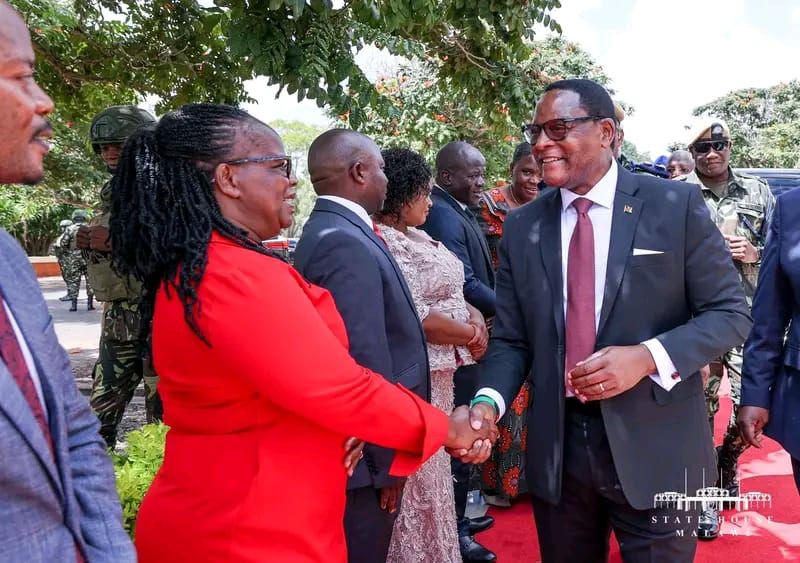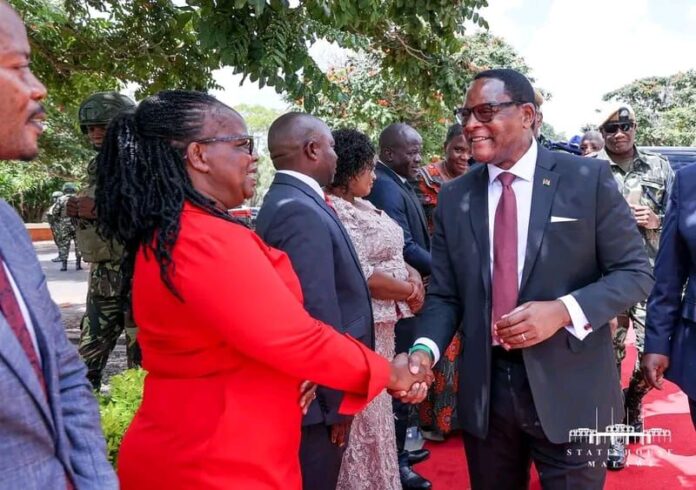By Burnett Munthali
President Lazarus Chakwera today held crunch talks with Lilongwe West chiefs at Kamuzu Palace to tackle grassroots development challenges.
The meeting was described as a strategic engagement aimed at connecting the presidency directly with traditional leadership at the community level.
It took place against the backdrop of growing frustrations from rural constituencies over the slow pace of development in their areas.

The marathon sessions saw traditional leaders table pressing community issues, from infrastructure gaps to economic hurdles.
These included the need for improved road networks, better access to health and education facilities, and enhanced support for local agriculture.
Some chiefs voiced concern over youth unemployment and the lack of small-scale business opportunities in their respective areas.
Others called for increased government accountability in the implementation of community development projects.
Local Government Minister Richard Chimwendo Banda joined the talks as the administration seeks to align national plans with local needs.
His presence underlined the seriousness with which the government is treating the concerns raised by traditional leaders.
Minister Chimwendo Banda reiterated the importance of bridging the gap between government policy and grassroots implementation.
He emphasized that traditional leaders are critical partners in the decentralization process and must be empowered to monitor development on the ground.
“This is about solutions, not just speeches,” said a State House insider.
The insider noted that President Chakwera is keen on turning community dialogue into concrete action.
The meeting was reportedly candid, with the President urging chiefs to be honest about the challenges they face and to propose workable ideas.
Participants were encouraged to focus on collaboration rather than blame, as the government works to unlock stalled projects and improve service delivery.
More regional chief meetings are planned in coming weeks.
These follow-ups are expected to include stakeholders from other regions as part of a broader national consultation.
They will provide a platform for local leaders across the country to influence development priorities directly.
The engagement comes as Chakwera’s government ramps up efforts to decentralize development planning amid growing calls for faster rural progress.
This push for decentralization is being hailed as a key reform that could bring long-term benefits to Malawi’s underserved communities.
Critics, however, caution that without clear timelines, transparency, and follow-through, these engagements risk becoming political theatre.
Nonetheless, the President’s proactive approach signals a shift toward inclusive governance, where local voices shape national development.
By initiating direct conversations with traditional authorities, the Chakwera administration is attempting to rebuild trust and reinvigorate local governance structures.
The success of these efforts will depend not only on government commitment but also on the active participation and vigilance of the communities themselves.



